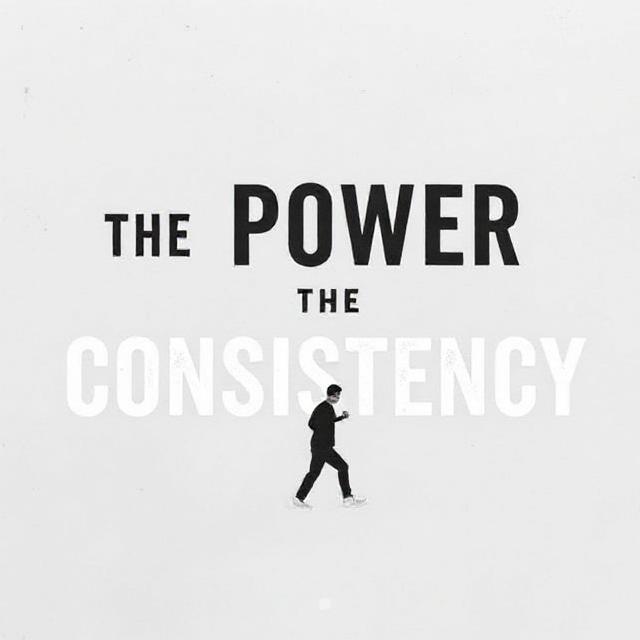
Quick Overview
- Start your day with intention, not distractions
- Improve your environment to boost productivity
- Use micro-habits to build long-term change
- Upgrade your language to strengthen mindset
- Apply the “One Percent Improvement Rule”
- Simplify your daily to-do list for clarity
- Track habit streaks to stay consistent
- End each day with a quick reflection
Why Small Changes Matter
Most people wait for a big breakthrough to change their life, but improvement doesn’t come from huge transformations. It comes from small, consistent actions repeated daily. A 1% improvement every day looks small in the beginning, but over time it creates powerful results.
Massive change feels overwhelming. Small change feels doable, and that’s why it works.
Step 1: Start Your Day With Intention
The first 10 minutes of your day shape your direction. Many people grab their phone immediately and let notifications control their mood and thoughts.
Instead, do this the moment you wake up:
- Drink water
- Take a deep breath and stretch
- Say out loud: “Here’s what I will do today.”
This simple mental reset breaks autopilot mode and puts you in control.
Step 2: Clean One Small Area
A cluttered environment leads to a cluttered mind. You don’t need a full deep clean. Just organize one small area each day — your desk, a drawer, your digital files, or your email inbox.
Clean space = clear thinking.
Clear thinking = better decisions.
Step 3: Practice Micro-Habits
Micro-habits are 2-minute actions that trigger bigger progress. They remove resistance and make self-improvement automatic.
Examples:
- Read one page daily instead of planning an hour of reading.
- Do one push-up instead of waiting for a “perfect workout day.”
- Write one sentence instead of overthinking your writing goals.
Once you start, you naturally do more. Starting is the real win.
Step 4: Use Better Language
Your language shapes your identity. Replace weak phrases with strong, action-based statements.
| Stop Saying | Start Saying |
|---|---|
| “I’ll try.” | “I will.” |
| “I can’t do this.” | “I’m still learning this.” |
| “I don’t have time.” | “I will make time.” |
| “I’m always tired.” | “I’m resetting and coming back stronger.” |
Small language shifts create mental strength over time.
Step 5: Apply the One Percent Rule
Every day, ask yourself: What is one small thing I can improve today?
Examples:
- Wake up 5 minutes earlier
- Walk for 10 minutes
- Replace one unhealthy snack with a better option
- Spend 5 minutes learning a new skill
You don’t need a full transformation. You just need better direction.
Step 6: Create a Simple To-Do List With Only Three Priorities
Most people overload their to-do list and end the day feeling like a failure. That destroys motivation.
Instead, write only three tasks each day:
- One primary task (non-negotiable)
- One secondary task
- One personal growth task
This creates clarity and reduces stress. Progress becomes measurable.
Step 7: Track Your Habit Streak
Motivation increases when progress is visible. Create a simple habit tracker on paper or your phone. Each day you complete a habit, mark an X.
The goal becomes: “Don’t break the chain.”
This small visual cue builds consistency faster than motivation alone.
Step 8: Ask Better Daily Questions
Instead of ending your day scrolling or overthinking, ask yourself two quick questions before sleep:
- What is one thing I did well today?
- What is one thing I will improve tomorrow?
This keeps your mind focused on growth instead of guilt.
Step 9: Make Movement Automatic
Your body influences your mood. You don’t need a full workout routine to improve your energy. Just add movement into your day in small doses:
- Take stairs instead of elevators
- Stretch for 30 seconds every hour
- Do 10 body movements when you feel stuck
Motion creates emotion. Energy increases through action, not waiting.
Step 10: Limit Your Negative Inputs
Even small consumption habits change your mindset. Replace 10 minutes of negative scrolling with:
- A positive podcast clip
- A quick educational video
- A short motivational message
- A book summary instead of random social media
Better input = Better thinking = Better life choices.
FAQ Section
Q: Can small habits really change my life?
Yes. Small habits become automatic routines, and routines shape your lifestyle in the long run.
Q: What if I keep breaking my habits?
Restart without overthinking. Consistency grows through repetition, not perfection.
Q: How do I stay consistent?
Track your progress visually. Seeing a streak makes your brain value consistency.



